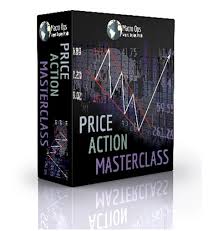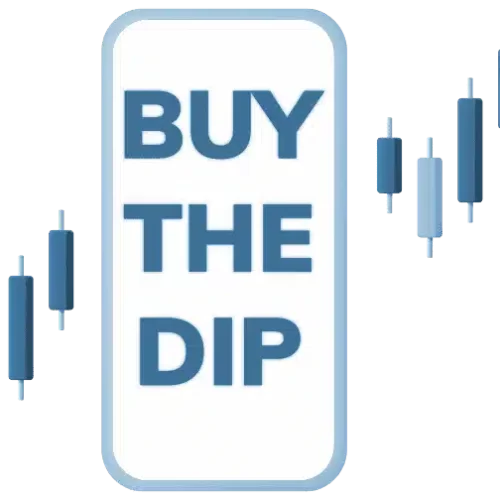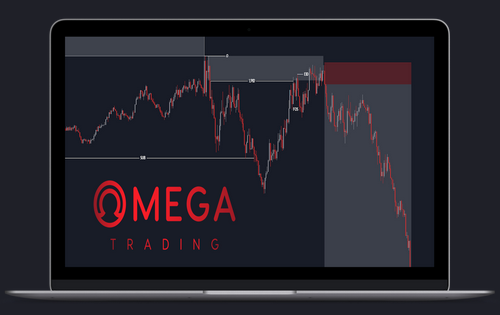What is a Macro OpsPrice Action Masterclass�for Cheap?
This isn’t your average technical analysis course.
- We’re not just going to show you how to draw lines on a chart.
- We’re not just going to show you how to read a few random indicators.
- We’re going to help you achieve much more.
In the Price Action Masterclass, we take a deep dive into the theory and philosophy behind price action. Our goal is to help you build the solid foundation and understanding needed to reach a mastery level in technical analysis.
True mastery is the only way to reach simplicity on the other side of complexity.
The goal here isn’t to teach you some basic technical strategy that only works in the current market environment and falls apart with any small change.
We want to teach you why technical analysis can be effective in analyzing markets and how you can use that information to profit.
“Give a man a fish and you feed him for a day. Teach a man to fish and you feed him for a lifetime.”
Now this isn’t to say we won’t provide you with any price action tactics. This course is not all theory. It’s absolutely actionable. We’re going to show you exactly how we conduct our technical analysis at Macro Ops. We’re talking step-by-step instruction.
But before we do that we’ll equip you with the knowledge you need to take full advantage of those tactics and techniques. At the end of this course, you’ll even be able to create your own technical methodology.
What You’ll Learn In Price Action Masterclass
Section 1: Prime The Pump: Prep Your Mind For Success
- Lecture 1: A Beginner’s Mind… — Extracting maximum value from any class or course requires rewiring your mind to emulate a beginner. This lecture helps prepare you to reach that mindset and unlock your full learning potential.
- Lecture 2: The “Value” In Price Action — Discover the value price action brings to a trading process. It’s far more than just basic identification of trade setups. Price action helps with risk control, emotional management, timing, and more.
- Lecture 3: Multidimensional Forecasting — Say goodbye to vague “CNBC” style forecasting and learn all the components involved in a real, executable, and definable trading signal.
Section 2: The Philosophy Of Price Action: A Foundation For What’s To Come
- Lecture 4: Simple Is Beautiful — Keeping you price action technique simple is the key having it survive over the long haul. But that’s not all. A simple price action system allows us to quickly find excellent trade candidates as well as easily measure performance. This lecture makes the case against “indicator soup” and other complex technical methods.
- Lecture 5: Deathmatch: Techs Vs Fundies — A deep dive into the heated debate between technicians and fundamentalists. At a high enough level, both camps are actually executing a similar process. But at the end of the day everyone is a slave to the tape.
- Lecture 6: Sorry Miss Cleo… It’s About Possibilities, NOT Predictions — Successful Operators know that price systems will never be 100% accurate. Trading is a probabilistic endeavor. Expecting certainty sets you up for failure. This lecture helps move expectations from certainty to managed uncertainty. Poker is used as analogy.
- Lecture 7: Sturgeon’s Law: 90% Of Everything Is Crap! — One of the most difficult parts of active trading is avoiding “middle of the road” setups. Aligning yourself with Sturgeon’s Law will help you trade within pockets of clarity and avoid mediocrity.
- Lecture 8: Isn’t It All Just Random Anyway? — Most technical practitioners will never touch the subject of market randomness. This lecture does the opposite. We attack the conundrum head on and offer ways to mentally deal with the reality of a quasi-random market.
Section 3: Charting: Transforming Pretty Pictures Into Strategic Strike Maps
- Lecture 9: Reading Price Is Reading Emotions — Understanding that charts are a detailed map of investors’ emotions helps clarify why price action systems work. This understanding is key to building confidence when using any technical method.
- Lecture 10: The Two Faces Of Price: Consolidation and Trend — This lecture lays the groundwork for a complete mental model of price action. At the highest level price can only do two things: trend or consolidate. Knowing this helps a trader digest complex market fluctuations.
- Lecture 11: The Breakdown: Deconstructing Trends — Since the beginning of markets, master speculators have exploited trending behavior to generate billions in profits. This lecture dives deep into the theory and structure behind lucrative trends in financial markets.
- Lecture 12: Life In Pieces: Fractals — The discovery of fractal geometry by Benoit Mandelbrot began when he looked at price action in the markets. Understanding fractals will help you reconcile price movements on multiple timeframes.
Section 4: It’s All About Data: Use Numbers & Score Big
- Lecture 13: The Random Walk — Find out how quants model the market and where that model breaks down. The binomial model is also proposed as a more intuitive way to understand the random walk. Embracing randomness rather than fearing it is a healthy approach for any trader battling the markets.
- Lecture 14: Noise Vs Signal: Can You Hear Me Now? — Some markets are harder to trade than others. This reality is explained and quantified using the efficiency ratio.
- Lecture 15: Back And Forth: Momentum and Mean Reversion — Learn how quants categorize price movements across multiple timeframes. Two main forces emerge, momentum and mean reversion. You can exploit these forces by correctly identifying where and when each is likely to dominate.
- Lecture 16: V Is For Volatility — Studying price action without understanding volatility is like driving blindfolded. Volatility conditions can overwhelmingly determine the success or failure of a technical signal. In many ways the volatility of price is more predictable than price direction itself. You will learn how to apply knowledge of volatility to a price action system.
Section 5: The Macro Ops Market Lens: Consistently Execute Profitable Trading Ideas
- Lecture 17: Target, Deploy, Profit — There are many ways to skin the cat when it comes to analyzing price. Macro Ops uses classical charting patterns as a market lens. Learn the pros and cons of this method.
- Lecture 18: The Nitty-Gritty Of Price Patterns — This lecture goes through all the classical chart pattern setups we use to execute trades. The key is to avoid “Rorschach analysis” and only focus on what’s crisp and clear.
- Lecture 19: *Knock Knock*: Entries — What’s the difference between an “okay” entry and a perfect one? Find out as we dissect what a quality breakout bar looks like. This lecture also touches on breakout failures and retrace entries.
- Lecture 20: It’s Morphin’ Time! …For Patterns — Chart patterns can morph and fizzle into unintelligible chicken scratch. Understanding the reason for pattern failure will help set expectations. It will also steer us away from market conditions that make price pattern trading more likely to fail.
- Lecture 21: Timeframes — A full out discussion on which timeframes to focus on and why. Higher timeframes offer the best combination of stability and efficiency. Also discover how to use multi-timeframe analysis to uncover extremely fruitful “nested” patterns.
- Lecture 22: A Game Of Nuance — Each asset class behaves in its own unique way due to differences between the market players trading them. Fixed income will never trade like oil. And a hot tech stock will never trade like an equity index. Awareness of these market nuances will help you tweak your price action analysis to better fit a target market.
- Lecture 23: Scoping Your Targets — Get a front row seat to how we scan through markets searching for that next big win.
Section 6: Trade Management: Increase Your Profitability And Protect Your Emotions
- Lecture 24: Graceful Exits — Entering a trade is only the beginning. To maximize your edge in the market you must become a master at exiting trades. This lecture explores all different types of exit strategies for losing trades and winning ones.
- Lecture 25: Probability Mutation — The location of your stops and targets have a much higher influence on your win rate than anything else. Quantifying and understanding the theoretical breakeven rate on a trade setup will give you a ballpark estimate of a trade’s probability of success. Armed with this knowledge you can tweak your system to fit your emotional needs.
- Lecture 26: Bayesian Inference — Master traders, the best in the business, are able to effectively make adjustments and tweaks to existing trades as new information becomes available. This process is called Bayesian Inference. Learn how to apply this advanced technique to your trading.


 SAMPLE:
SAMPLE:


